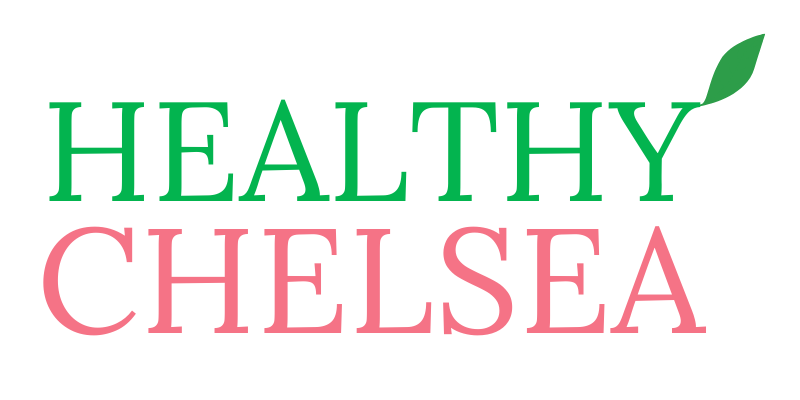Have you jumped on the collagen train yet?
The trend of adding collagen peptides to drinks and smoothies for glowing, elastic skin and sipping on bone broth for healthy joints, healthy gut, and weight loss is exploding.
In 2018 alone, we spent $46.6 MILLION on collagen supplements!
And why are collagen peptide supplements so popular?
The promises of younger looking skin, weight loss, and healthy joints are appealing to almost everyone.
But are these promises true?
And are collagen supplements worth their high price tag?
Let’s see…
Have you asked yourself what collagen is?
Collagen is a type of protein, often referred to as our body’s “scaffolding.”
Why “scaffolding?”
Because the tissues that hold out body together is made out of collagen.
Think bones, tendons, ligaments, skin, blood vessels, our organs…
Yes, our whole body is made largely out of collagen.
And as we age, our collagen production declines.
Hence the desire of many people to boost their collagen supply!
But are collagen supplements necessary for boosting our collagen supply?
The truth is, collagen supplements may not be necessary for you to see the benefits of younger skin, strong and gorgeous hair, weight loss, healthy joints, and improved gut health.
While researchers have studied the effects of collagen, the results are often limited or biased.
Does it seem right that the collagen supplement industries should fund the research on collagen?
If you answered “no,” you’re right.
Industry backing of their own products is sketchy at best.
The research studies are also small, and there hasn’t been research on the long-term effects of collagen.
And the scope and number of clinical trials are lacking.
So, more research on the effects and necessity of collagen supplementation are needed.
But while we wait on the researchers to do their thing, what should we do in the meantime?
You can buy collagen peptides for about $50 for a month’s supply.
And yet, those collagen supplements come with some risks.
You might experience an allergic reaction, or suffer the side effects of nausea, heartburn, headaches, diarrhea, constipation, and skin reactions.
So, is there a better way to boost your collagen supply without a high price tag or side effects?
Consider this:
Collagen is a type of protein, which means it’s a chain of amino acids linked together.
Whenever we ingest protein, whether that’s from a piece of chicken, quinoa, beans, or collagen peptides, we break down that protein into amino acids.
Here’s the thing, you don’t get to choose where those amino acids go in your body go, or how they are used.
Instead, your body prioritizes those amino acids for whatever your body needs them for.
In other words, those expensive collagen peptides your adding to your morning coffee might not be used for collagen production at all!
Your body chooses where those amino acids will be best used.
If your body is choosing how the protein you consume is used, you’re likely better off eating real food instead.
The protein from nuts, seeds, quinoa, spirulina, salmon, chicken, and eggs can be consumed to boost your collagen supply.
When it comes to healthy skin, healthy weight, healthy joints, and a healthy gut, a balanced diet is king.
· Vitamin C-rich and antioxidant-rich foods boost collagen formation and skin regeneration
o Think oranges, peppers, strawberries, broccoli, and tomatoes
· Vitamin E can also help protect your skin, since it’s a powerful antioxidant
o Think nuts, seeds, and whole grains
· Even turmeric has collagen-boosting benefits
o You can make curries and Golden Milk to see turmeric’s benefits
· Zinc and sulfur both play roles in collagen formation as well
o Think chicken, beans, nuts, seeds, whole grains, onions, garlic, and broccoli
· And don’t forget that protein, as mention above
o Think nuts, seeds, quinoa, spirulina, salmon, chicken, and eggs
You see, a whole foods, plant-based diet allows you to get the protein, antioxidants, vitamins, and minerals you need for healthy collagen production.
And be aware of the choices that actively reduce collagen.
Sugar actually can cause irreversible damage to the collagen in your body!
Sugar binds to collagen, which creates AGE’s (advanced glycation end products), which causes a loss in the strength of the collagen.
Which then leads to wrinkled, saggy skin.
Just another reason to limit added sugar, isn’t it?
And be sure to load up on SPF to protect your skin from damage!
All of these can lead to the damage of collagen:
· Sun exposure
· Pollution
· Smoking
· Alcohol
Final thoughts:
Don’t let yourself get swept up by the marketing tactics of products, like collagen.
Always come back to your eating and lifestyle choices when trying to make a healthy decision.
And when in doubt, experiment with what works best for you and your needs.
Knowing what you know now, would you spend the money on collagen peptides?
Need a few collagen-boosting recipes?
>>Strawberry Chia Seed Pudding Parfait
>>Foolproof Restaurant Quality Salmon


